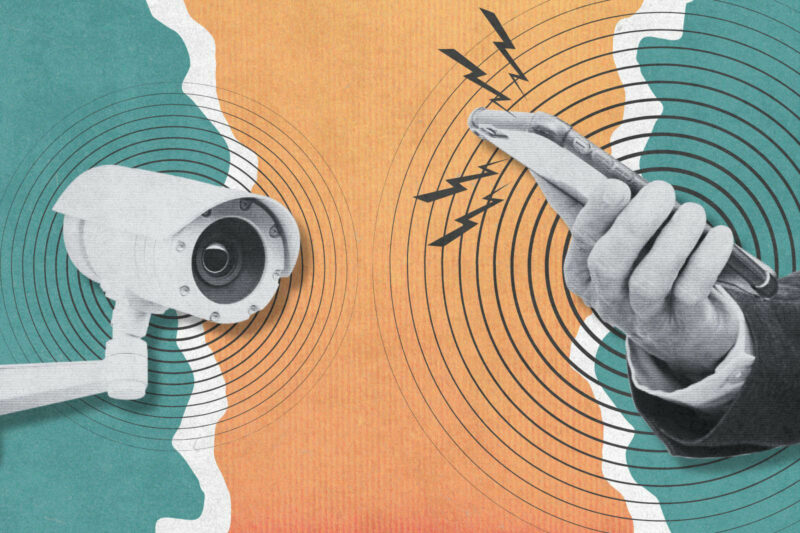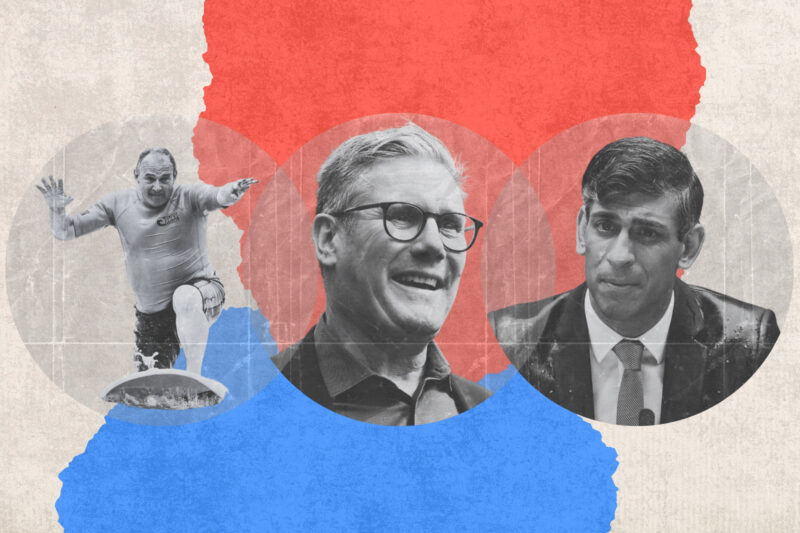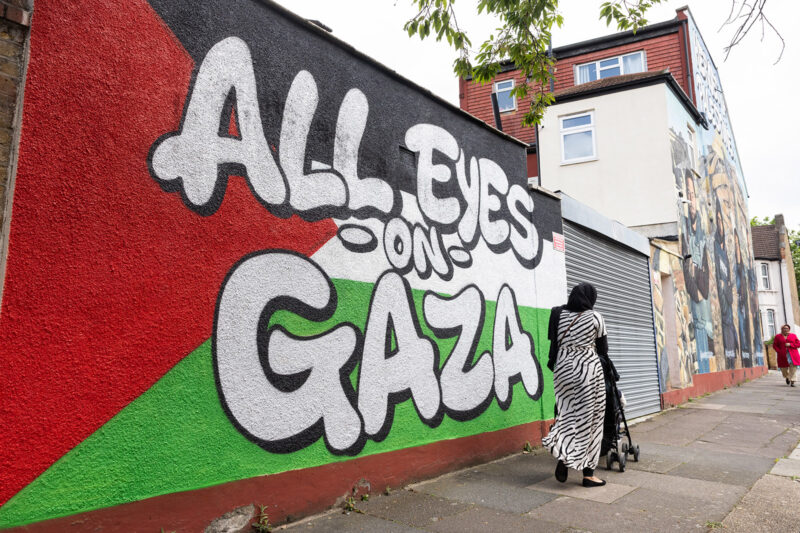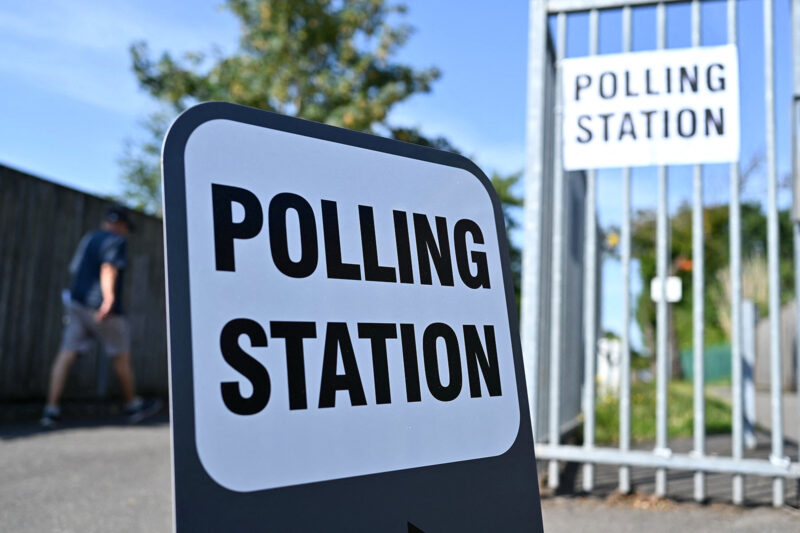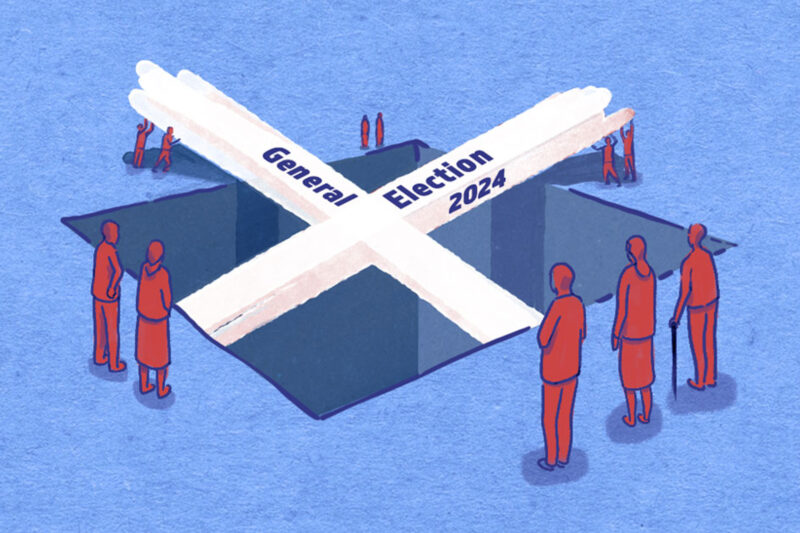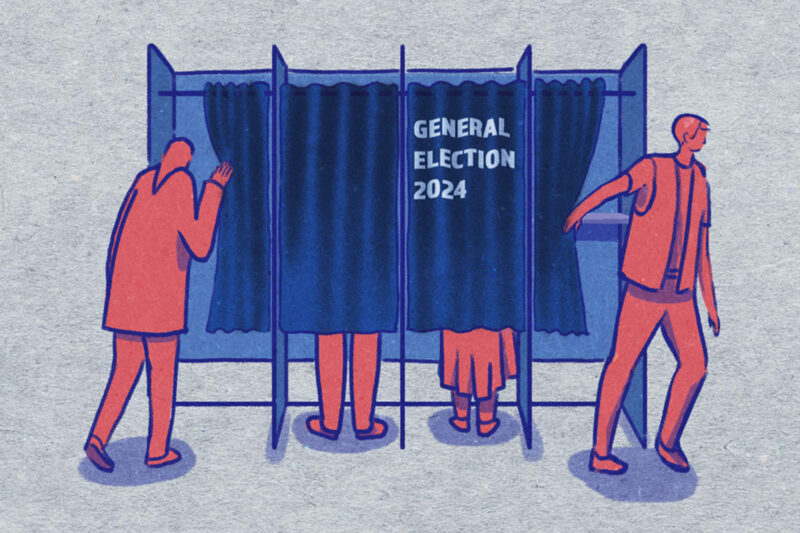Why Hyphen’s unique election poll of British Muslims is so revealing
Exclusive research by Savanta shows Muslim voters feel let down over Gaza — but most are worried about the NHS
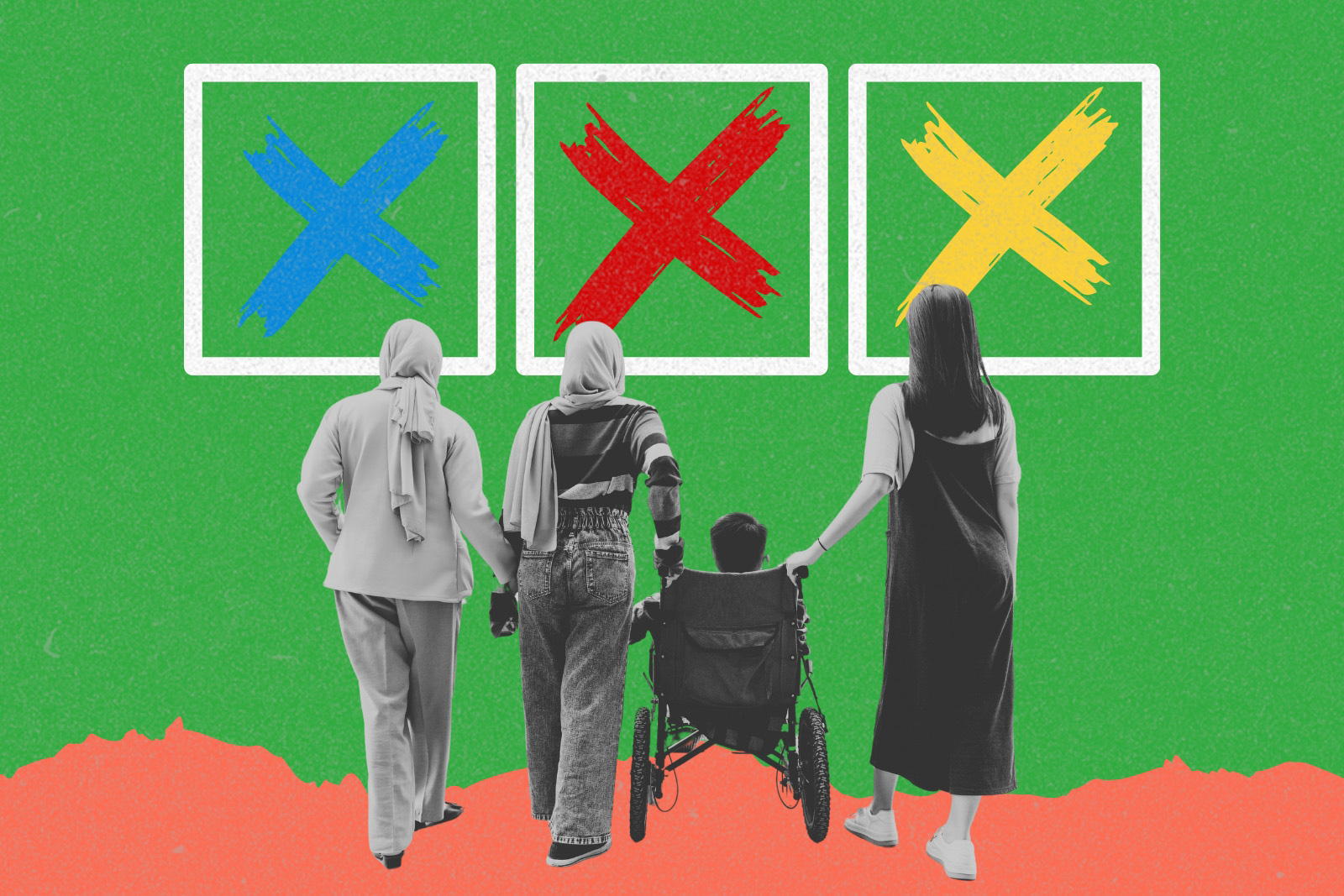
Savanta’s exclusive poll for Hyphen, published today, is the first research during the UK general election campaign into the issues that matter to British Muslims.
Polling companies do not often conduct full-sized surveys looking into the political preferences of British Muslims, and this is the first for several months. The sample size of more than 1,000 Muslims allows for detailed conclusions about what people think — and the results paint a very different picture from the negative stereotype pushed by prominent politicians in recent months of alienated “hate marchers”. While British Muslims are a distinct group of electors, the picture emerging from these results is how much they have in common with other British voters and how much they value democratic institutions.
Savanta’s research confirms that Labour’s standing among British Muslims has taken a knock since 2019, with 63% saying they will support the party now, compared to more than 80% at the last general election. But perhaps the most unexpected aspect of the findings is the strength of Labour’s backing despite that.
A major part of the reason for Labour’s continuing strength with Muslim voters is simply that the Conservative government is unpopular, whatever the social and demographic characteristics of voters, and that Keir Starmer’s party is seen as its main alternative.
Muslims are not single-issue voters. Four of the five biggest issues that people said would determine their vote were the same for Muslims as for the UK at large — the NHS, the cost of living, the economy, and housing. Given that they are interested in the same issues, it is not surprising that Muslims have taken part in the national swing to Labour. Support for the Conservatives is down, with nearly half of Muslims who said they would vote Tory feeling it was “likely” they would change their minds before polling day — an unusually high degree of hesitancy.
There are two major differences between the issue agendas of Muslim voters and the rest of the UK electorate polled by Savanta. One is that Muslim voters are much more likely to regard the Israel/Palestine conflict as one of their top five issues (44% compared to 12% of the UK at large). The other is that Muslims are much less likely to regard immigration as a top five issue (25%, compared to 41% of the UK as a whole).
The relative lack of emphasis on immigration means that Muslims are probably less likely to respond to Conservative campaigning on the issue, and particularly unlikely to vote for Nigel Farage’s Reform UK party, which scores a measly 1% of the Muslim vote in the poll. Muslims may also see the issue of immigration differently; rather than fear of the other, they may focus on matters such as the way the system treats families seeking reunion.
Labour has undoubtedly lost Muslim voters to the Greens and Lib Dems because of Israel/Palestine. The exodus of those who backed the party in 2019 has continued since Savanta’s last poll in November, despite Labour shifting its position towards supporting a ceasefire — but has been counterbalanced by the party gaining votes from ex-Conservatives. Savanta’s research offers an insight into the risks Labour is running, but also into how it might mitigate those risks.
In theory, there is great potential for independent candidates campaigning on the issue of the Israel/Palestine conflict. Of the 44% of Muslims who ranked the conflict in their top five issues, the vast majority (86%) said they would consider voting for a pro-Palestine independent. That would amount to 38% of Muslim voters in total; coupled with support from non-Muslims who feel strongly about Israel/Palestine, that is enough to be in contention in several parliamentary constituencies with significant Muslim populations.
But this requires credible independent candidates, of whom there is a limited supply, and understanding how many independents might actually be elected requires specific seat-by-seat knowledge of local campaigns and communities. The poll also suggests that, even though there are strong views on Gaza, Labour’s advantage on other issues — and the party’s image of listening to and representing Muslims — may enable it to resist the challenge of independents in many constituencies with big Muslim communities.
Beyond the issue of Palestine, the poll gives Labour cause for hope. The rest of the issue agenda is working so strongly against the Conservatives that even Muslims who feel strongly about Gaza seem likely to vote Labour because of other concerns, as will non-Muslim voters — particularly if there is no strong independent standing locally.
| Thinking about the main political parties in the UK, to what extent, if at all, do you feel like they represent your concerns? % | UK Muslims | UK National representative sample |
|---|---|---|
| A lot/a fair amount | 49 | 37 |
| Not much/not at all | 46 | 59 |
| Don’t know | 5 | 4 |
Another interesting finding from the poll is that British Muslims are strong believers in the possibilities of democratic politics: they were, for instance, more likely than non-Muslims to say they felt represented by the UK’s main political parties. When people who felt represented were asked which party represented them, most of the national sample — and most of the Muslims — felt that Labour was doing that.
Younger Muslims were particularly pro-Labour, and particularly inclined to believe that the political parties were interested in their views — both as young people and as Muslims. Interestingly, the poll found that Muslims aged over 55 most often felt that the Liberal Democrats represented them. Perhaps this is a long-lasting residue from the Lib Dems’ opposition to the invasion of Iraq in 2003.
The poll also demonstrated that half the British Muslims felt that the political parties were regarding them as a high priority in the general election. Muslims were also more likely than non-Muslims to have taken part in democratic processes outside the ballot box such as signing a petition, demonstrating, or writing to a politician or the media.
Muslim voters feel that they are an important part of the political and electoral scene and that their concerns are being taken seriously. Their faith in democracy in Britain and its institutions is, if anything, higher than the national average. It is up to the parties to prove them right — or wrong.
Lewis Baston is a psephologist who has worked for Channel 4, The Guardian, The Times and the Financial Times. He is author of the newly published book Borderlines.
 Newsletter
Newsletter


